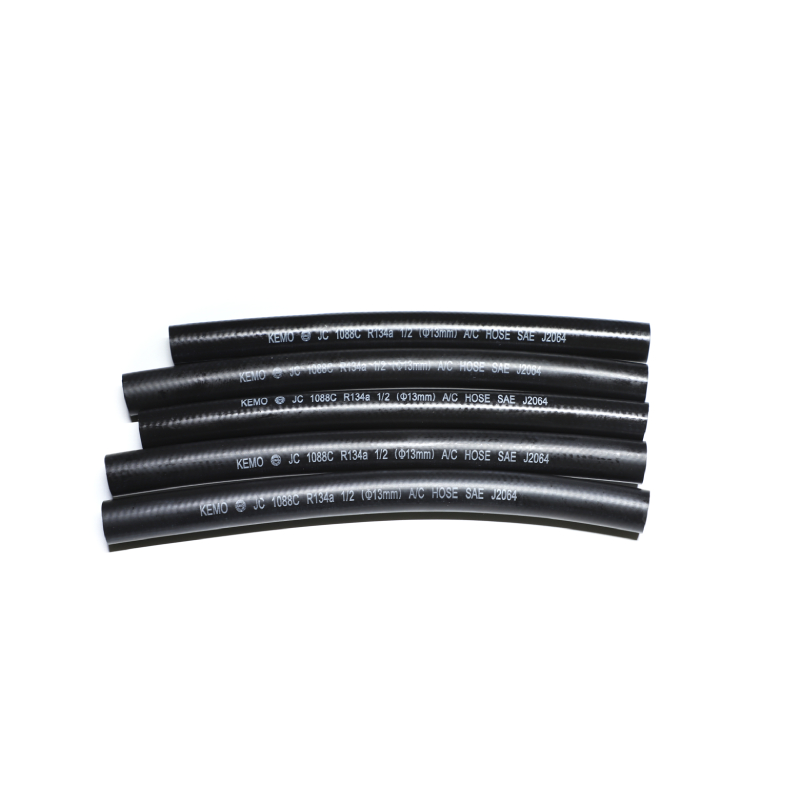diesel rated fuel line
Oct . 13, 2024 16:58 Back to list
diesel rated fuel line
Understanding Diesel Rated Fuel Lines Importance and Applications
In the world of diesel-powered equipment, fuel lines play a crucial role in ensuring efficient operation and long-lasting performance. Diesel rated fuel lines are specifically designed to handle the unique properties of diesel fuel, which differs significantly from gasoline. Understanding the characteristics, material standards, and applications of diesel rated fuel lines is essential for anyone involved in the design, maintenance, or operation of diesel engines.
What Are Diesel Rated Fuel Lines?
Diesel rated fuel lines are hoses and piping systems designed for transporting diesel fuel from the tank to the engine. These lines must withstand the high pressure and various environmental conditions that diesel systems often encounter. The term rated indicates that these fuel lines meet specific industry standards and specifications that ensure their performance and safety under varying conditions.
Properties of Diesel Fuel
Diesel fuel is denser and has a higher viscosity than gasoline, which means it requires a fuel line that can accommodate these properties. Moreover, diesel fuel is prone to microbial growth and does not evaporate as easily as gasoline, which can lead to clogging and other issues if the fuel line is not adequately designed. Additionally, diesel fuel involves different combustion characteristics, resulting in different thermal and pressure requirements for fuel lines.
Material Standards
The materials used to manufacture diesel rated fuel lines must be compatible with diesel fuel to prevent deterioration and ensure durability. Typical materials include rubber compounds reinforced with synthetic fibers, thermoplastic elastomers (TPE), and metal alloys for more robust applications. It is vital that these materials can resist the chemical constituents of diesel fuel, such as sulfur compounds, which can cause corrosion and material breakdown over time.
Standard specifications for diesel rated fuel lines, like those set forth by organizations such as the Society of Automotive Engineers (SAE) and the American Society for Testing and Materials (ASTM), establish performance benchmarks. For instance, SAE J30 R10 is a widely recognized standard for fuel hoses, indicating that they can endure not just diesel but also biodiesel—a renewable alternative that is becoming increasingly common.
Applications of Diesel Rated Fuel Lines
diesel rated fuel line

Diesel rated fuel lines are utilized across various applications, which include
1. Automotive Diesel-powered vehicles require high-quality fuel lines to ensure optimal performance. Heavy-duty trucks, cars, and buses all depend on these lines to deliver fuel efficiently.
2. Industrial Equipment Many industrial machines, such as generators, bulldozers, and excavators, operate on diesel. The reliability of fuel lines in these applications is paramount, as any failure could lead to costly downtime.
3. Marine Diesel engines are frequently used in boats and ships. Fuel lines in marine environments must not only deal with diesel fuel but also harsh environmental conditions, including saltwater exposure, requiring additional protective measures.
4. Agriculture Tractors and other agricultural machinery are predominantly diesel-powered. Diesel rated fuel lines ensure that these machines run smoothly during critical farming operations.
Maintenance and Best Practices
To maximize the lifespan and efficiency of diesel rated fuel lines, regular maintenance is crucial. This includes checking for leaks, inspecting for wear and tear, and ensuring that connections are secure. Additionally, using quality diesel fuel and additives can help prevent microbial growth and keep the fuel system cleaner.
Operators and maintenance personnel should also be aware of the guidelines set by manufacturers regarding installation and servicing of fuel lines. Proper installation techniques can prevent issues like kinking, which can restrict fuel flow and lead to engine performance problems.
Conclusion
Diesel rated fuel lines are essential components in the operation of diesel engines across various sectors. Their design and material specifications ensure they can handle the unique challenges associated with diesel fuel. Understanding their importance and adhering to maintenance best practices can help prolong their lifespan, optimize engine performance, and reduce the risk of costly repairs. As the reliance on diesel continues in various industries, proper attention to diesel rated fuel lines remains crucial for efficiency and sustainability.
